Melanie & Brady
About the couple
Mel is pursuing her masters in film at Columbia University. She's Chinese-Canadian and grew up in Hong Kong.
Brady is a freelance graphic designer. He's white-American and grew up in a small town in Georgia.
They met while studying at Savannah College of Art and Design, and now live in New York.
Interview
By Nidhi & Justin Barber
July, 2019
Photos
By Justin Barber
Pixel 3
Moment Wide Lense
VSCO SS3 Preset
Justin: Brady, how would you describe the cultural context of where you grew up?
Brady: I grew up in south Georgia. Deep south. Small town. The first time I brought Mel to my hometown, she had a hard time understanding my uncle because of his thick southern accent.
Mel: I cannot understand his uncle. He’d say something and everyone in the room would laugh, and I was like, I didn’t understand anything you just said.
Brady: She still has a hard time understanding him! So I have to translate, which is pretty funny, since it’s still English.
[laughter]
Brady: But yeah, it was not the “formal, proper south.” It was a dirt road. You know, I grew up on Willacoochee Highway. That was the name of the highway. Green Acres is where some of my family lived. All the names say a lot.
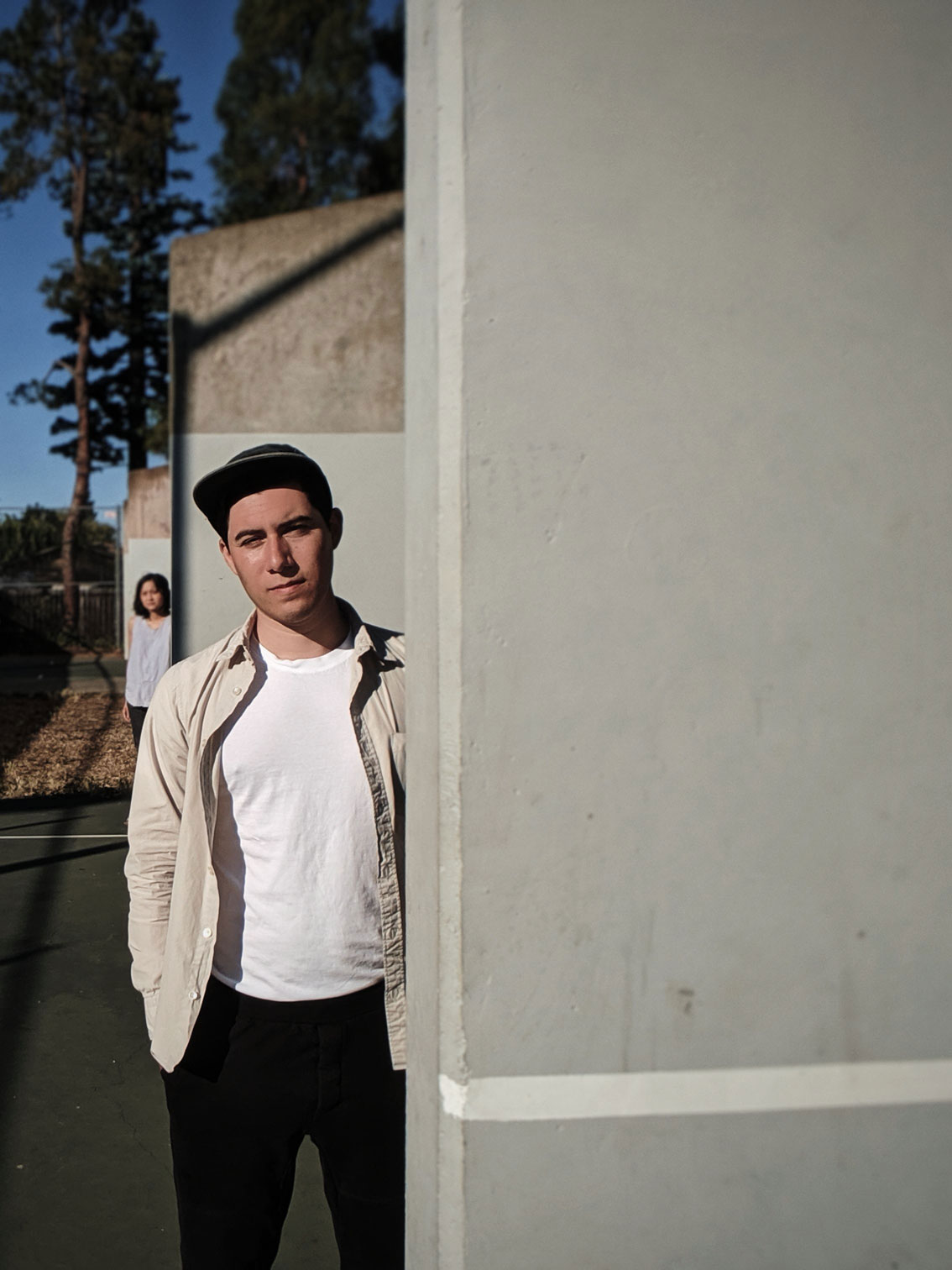
Nidhi: Mel, what about you?
Mel: I’m half Chinese, half white – my dad is from Hong Kong and my mom is from Canada – so I grew up in a mixed household. Like my favorite meal growing up was shepherd's pie, but we ate it on rice. There’s something about the mashed potatoes on the rice that’s just indulgent. It’s great. I’d encourage you to try it.
[laughter]
Mel: Almost every night we had Chinese food, or some combination of rice, meat, and vegetables. But then we’d also have Lasagna and other western foods, too.
Justin: What language did you speak at home?
Mel: We only spoke English. My dad never spoke Chinese to me or my sister. I’m not fluent in Chinese but I understand a lot. In some ways that made me closer to the Western side of my extended family, because I could talk to them. Whereas to this day I can't really communicate with my grandmother on my Chinese side.
Justin: What else was unique about growing up in Hong Kong?
Mel: I also grew up with a "domestic helper," essentially a live in nanny, which is super common in Hong Kong because usually both parents work. So I was practically raised by an Indonesian woman named Mini up until 11 years old.
Mini was my best friend. She bathed and clothed me as a toddler, dropped me off and picked me up from everything -- she would even take me on her errands to the Indonesian Consulate. Her friends would make me these milky Indonesian drinks and feed me shrimp chips.
The sound of her talking on the phone in a language I didn’t understand and the taste of her spicy Indonesian curry became so comforting. To this day I miss those things. I think that part of my upbringing has made me more comfortable around other cultures and ethnicities because I was raised in very close proximity to them.
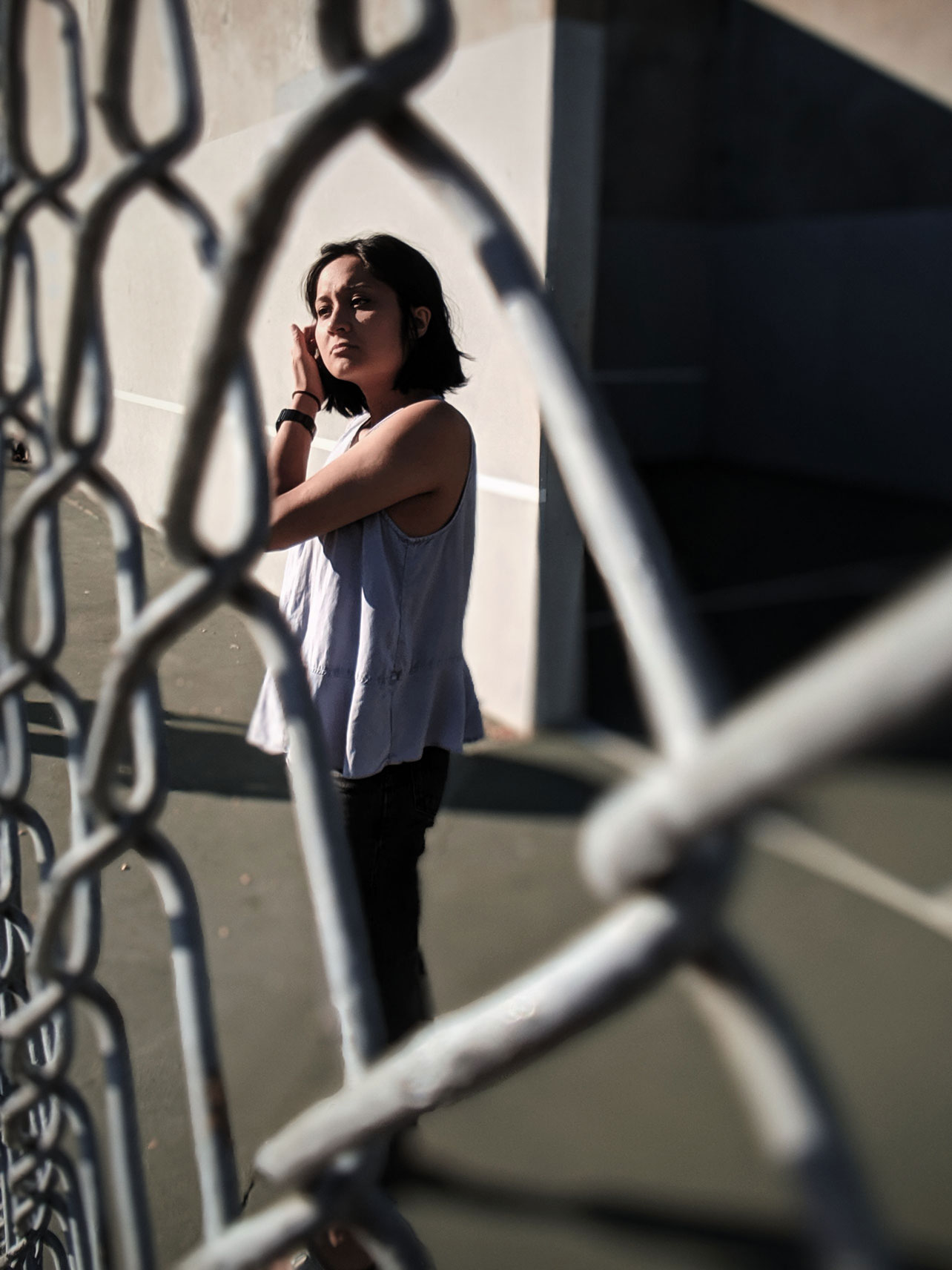
Nidhi: Let’s fast forward some – how did you meet?
Mel: We both went to Savannah College of Art and Design. After a year and a half at the Hong Kong campus I transferred to Savannah, where I met Brady. He was an RA at the dorm across from mine so I got to know his friend group. They would always eat dinner together at 5 o’clock. Which, culturally for me, was ridiculously early to eat dinner. What is this, lunch? A snack?
[laughter]
Mel: But Brady always invited me and eventually he started to show more interest. He helped me with my film final and then he asked me to ‘90’s Prom, a school event he put on with the other RAs. Afterwards we had a long talk and right then and there Brady said, “I want to marry somebody like you, and I think it might be you, so I want to date you to figure that out.” And I was like –
Nidhi: What?!
Justin: Wow. What was it about Mel that made you so confident?
Brady: Well prior to Mel, I was kind of a mess, getting myself into all sorts of trouble. So when Mel came along, she was this picture of purity and innocence, and it made me think . . . Ah, I really need to start over.
[laughter]
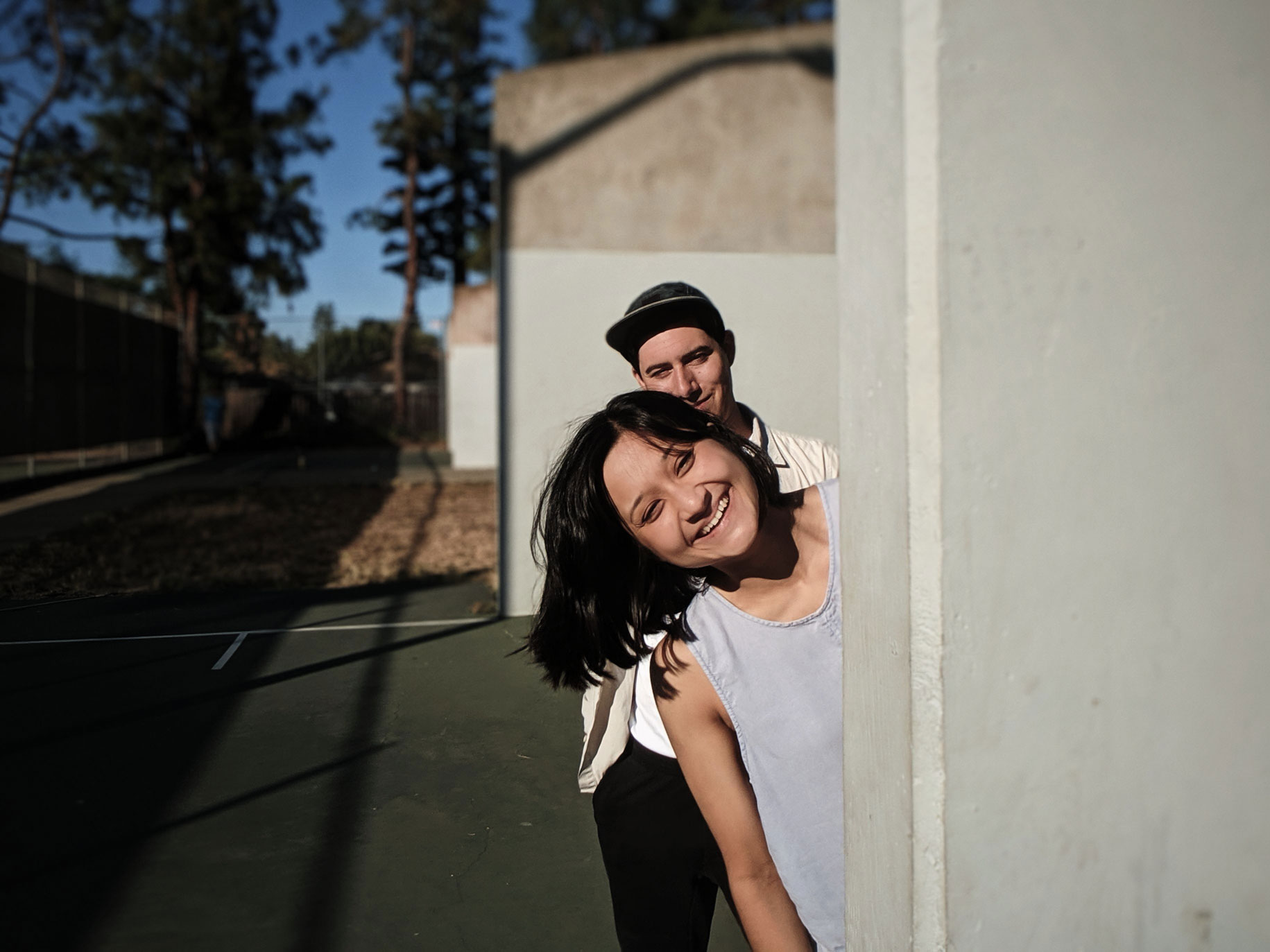
Justin: So you start dating. When was the first time you remember your cultural differences coming into the picture?
Brady: Sharing food. That was a huge thing. We’d go out to eat and she always wanted to share two separate entrees. I’d think, why do you want to share? I didn't really grow up with that. You get your own meal, and it's yours, you know? I wasn't used to family style sharing, putting the plates in the middle and sharing them.
Justin: I get that. What you order is what you order!
Nidhi: Is that a white people thing or just your family?
Justin: I think that’s generally a white American thing?
Brady: Yeah unless you're sitting down for Thanksgiving.
Justin: But that’s more like a buffet, right?
Mel: Wouldn’t you rather always share? It’s the best of both worlds.
Nidhi: Yeah! That way you get a little bit of everything.
Mel: Wait, that's funny. Food was definitely the first way we encountered our cultural differences, for sure. I remember the very first moment that I feared our cultural differences. As soon as I knew that he liked me, I starting taking note of what he was eating every day.
Justin: Like, Dear diary, today Brady ate a hamburger and he didn’t want to share it with me. I am deeply troubled.
[laughter]
Mel: No literally, though, he ate fries and chicken tenders every single day. Immediately I thought, “he must be picky, he's not going to like Chinese food, and that's gonna be a big problem.” But he’s changed so much.
Nidhi: Yeah, I wouldn’t have guessed that Brady used to be picky.
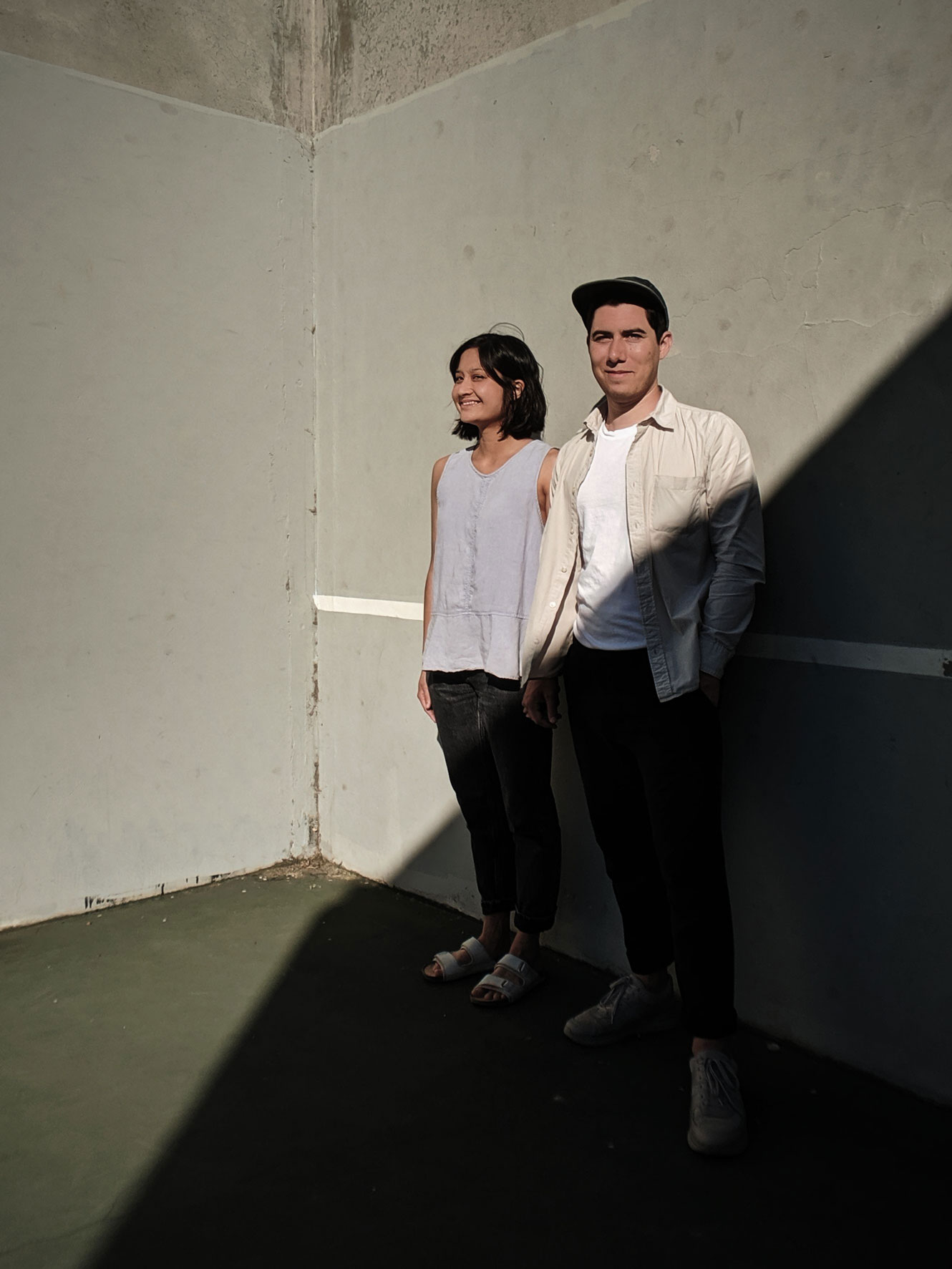
Justin: Food was the first sign! What else has been difficult about being in a multi-ethnic relationship?
Mel: When we first started dating, I felt like there was so much about myself that he didn't understand and that I wouldn’t be able to explain. I couldn't give him a single experience that would show him what it was like to grow up internationally or in a culturally blended family.
In college I was labeled as “Asian” a lot. To me, “Asian” can mean so many things that are so distinctly different. But when I first met Brady I was very aware that he, like a lot of America, had a clumped together view of what it meant to be “Asian." He didn't know the ins and outs of my city or my culture.
When you meet someone who comes from the same childhood or upbringing as you, it’s just getting to know each other's personalities. But for us, it was like, you know nothing about my life or my culture.
"When you meet someone who comes from the same childhood or upbringing as you, it’s just getting to know each other's personalities.
But for us, it was like, you know nothing about my life or my culture. "
Nidhi: There are no shortcuts to understanding.
Mel: Yeah, exactly. It was a lot to go into a relationship with someone feeling like they didn't understand my culture. It made me question if we really knew each other that well, because he doesn’t know about this or hasn’t experienced that. But that’s gotten easier and easier every year that we've been together.
Brady: Yeah, yeah. I was surprised that there were a lot of things that I had done that Mel had not, and vice versa. She’d traveled a lot, she went on an international trip with her school every year. I had never been out of the country when I met Mel. My school – I was in marching band – and we couldn't afford to go to away games, you know? Away games were like two hours away. So, yeah. It was a huge difference.
Justin: Wow.
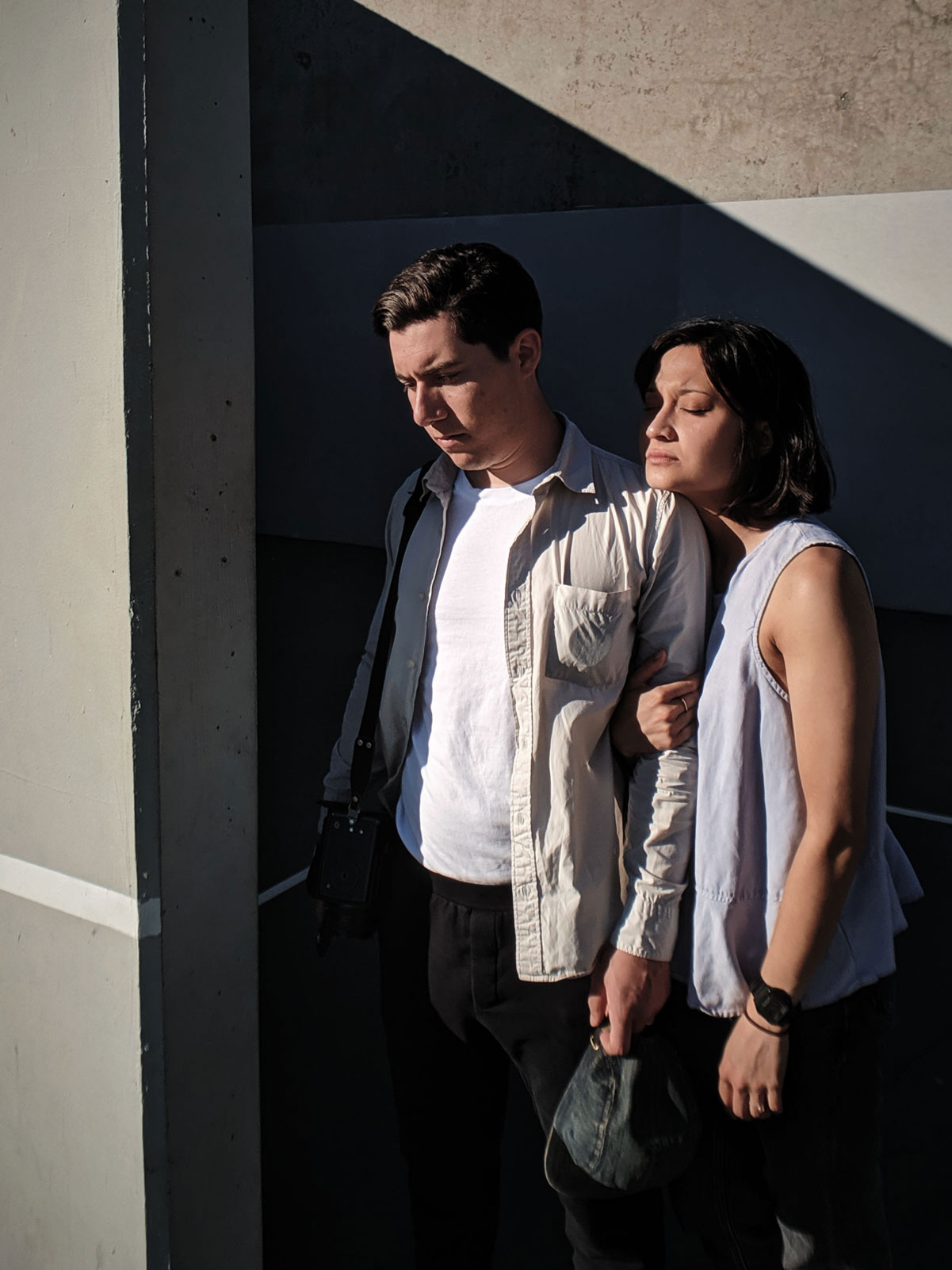
Nidhi: Two years into marriage, how have you seen your cultural differences play out in your relationship?
Brady: My values have shifted quite dramatically. I mean, it's really opened my eyes to different ways of doing things and an appreciation for family. There's a bigger value on family, I think.
Mel: Not to go back to food again...
[laughter]
Mel: But it has been one of the biggest things for us. The length of a meal was a huge culture shock for me when I came to the States. People sit down to eat and finish very quickly. I grew up lingering around a meal time for a long time.
Brady: Oh, yeah – a perfect example of this is when go out to eat with friends. All of us will have finished eating except for Mel because she’s been talking so much. She'll be holding up a fork with a bite of food on it the entire time. I'm scrambling to ask everyone else questions so she can finish eating.
[laughter]
Nidhi: How do you want to bring your cultures into raising kids?
Mel: I want my kids to grow up with aunties and uncles – for our best friends to be a big part of their lives. I want them to grow up eating a lot of Chinese food. And I really want them to speak Chinese . . . which is gonna be hard because I don’t speak fluent Chinese.
Brady: I definitely want them to experience as many cultures as they can. I want to provide that because it's not something I was able to have.
Mel: Actually, you know, Brady grew up playing in the dirt, in the woods. Being outdoors. I grew up mostly indoors, and I am allergic to everything and he’s allergic to nothing. So I’d really like our kids to experience the outdoors more.
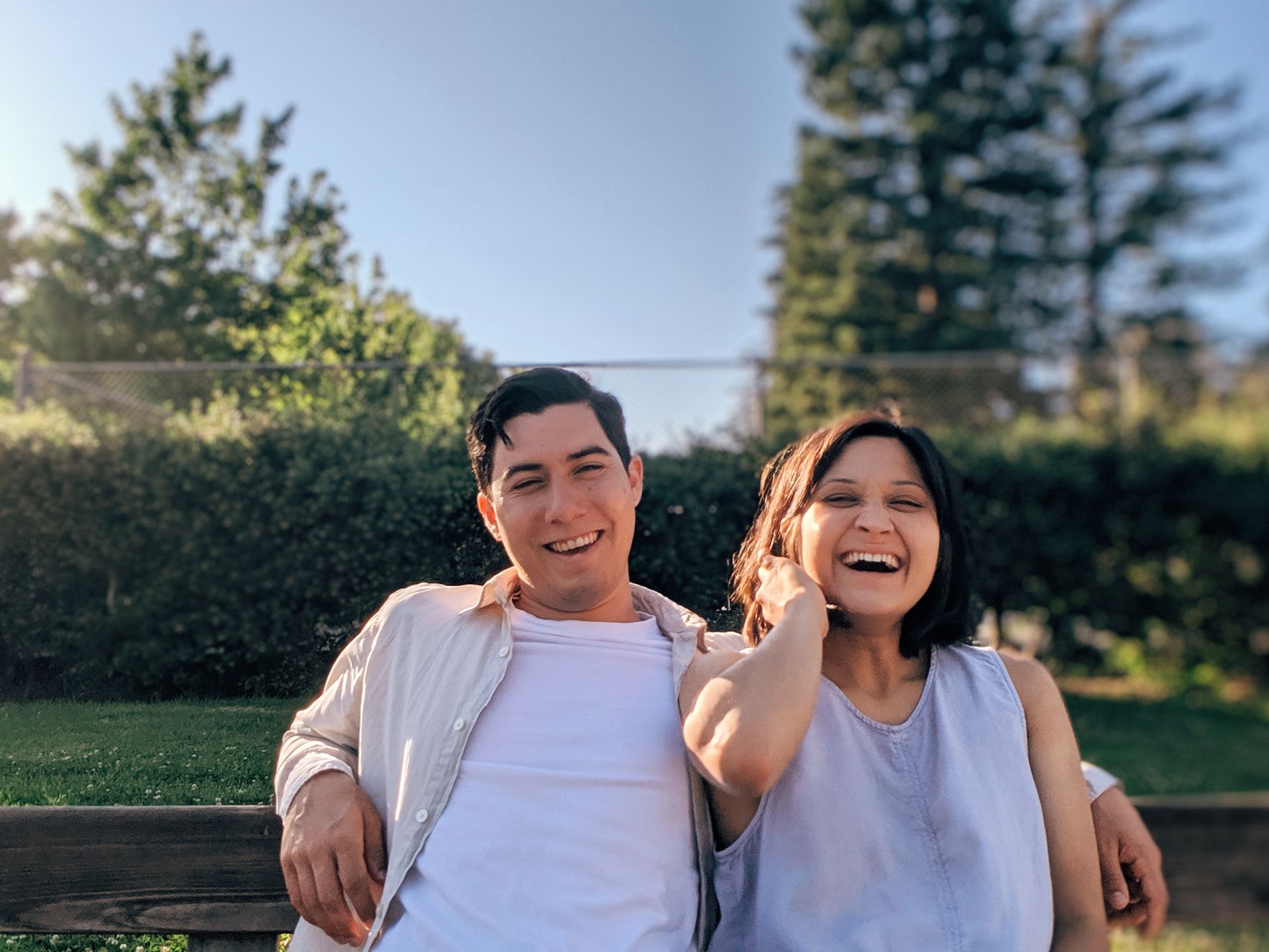
Justin: Last question. What is the most beautiful aspect of being in a mult-ethnic relationship?
Mel: I think a lot of walls exist between different cultures and races because there's a lack of exposure and understanding. But loving someone from a different race or culture than you gives you permission to ask questions and be curious because you’ve already built a bridge of trust with them.
Knowing that someone who looks different and grew up different than you can fall in love with you, come to deeply understand and care for you is truly powerful. It breaks down those walls.
Love is not only found in similarity, it’s something that has the power to span great differences.
Other Interviews

Marcie & SimonChicago
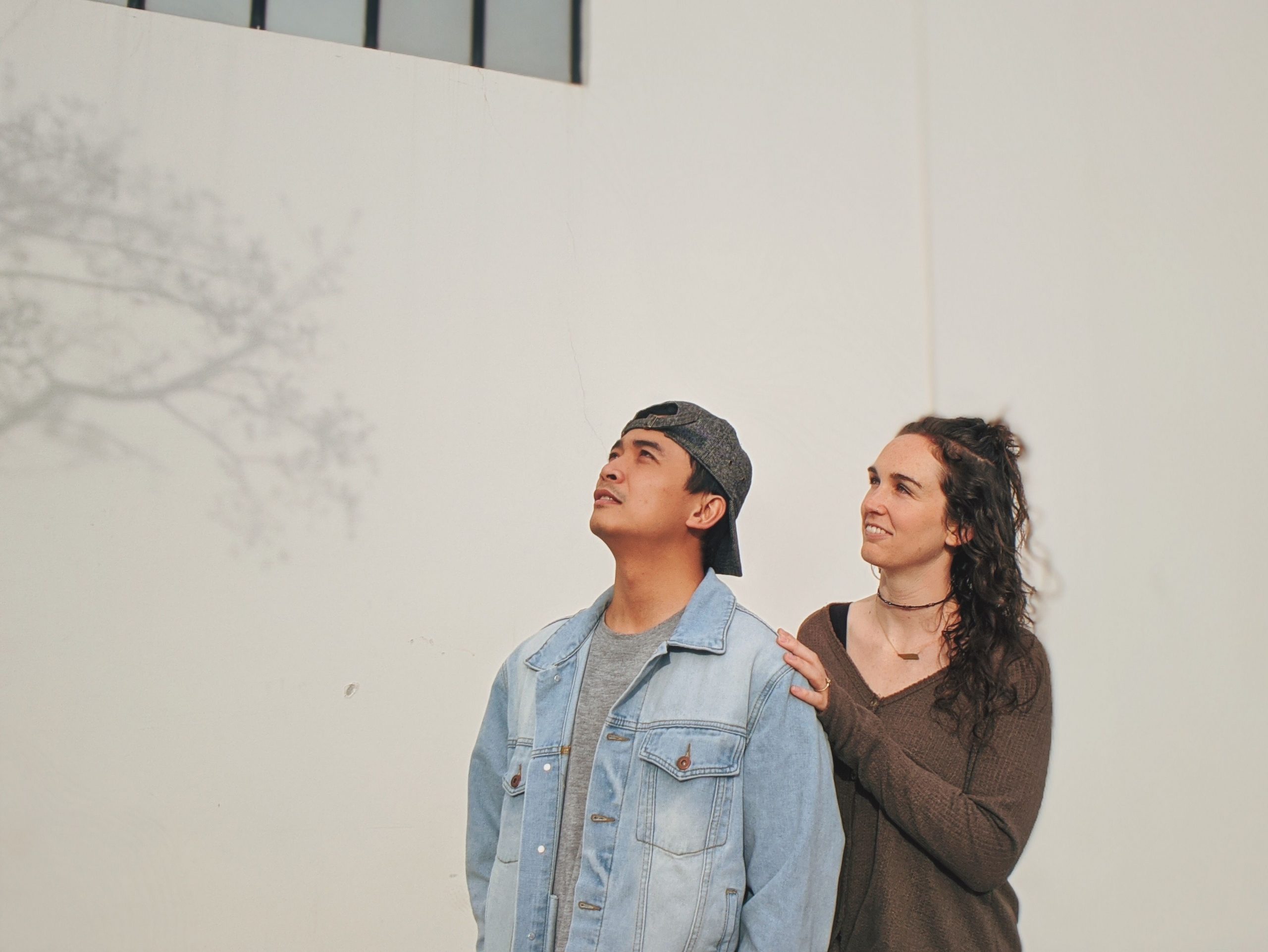
Jami & JoshueBay Area
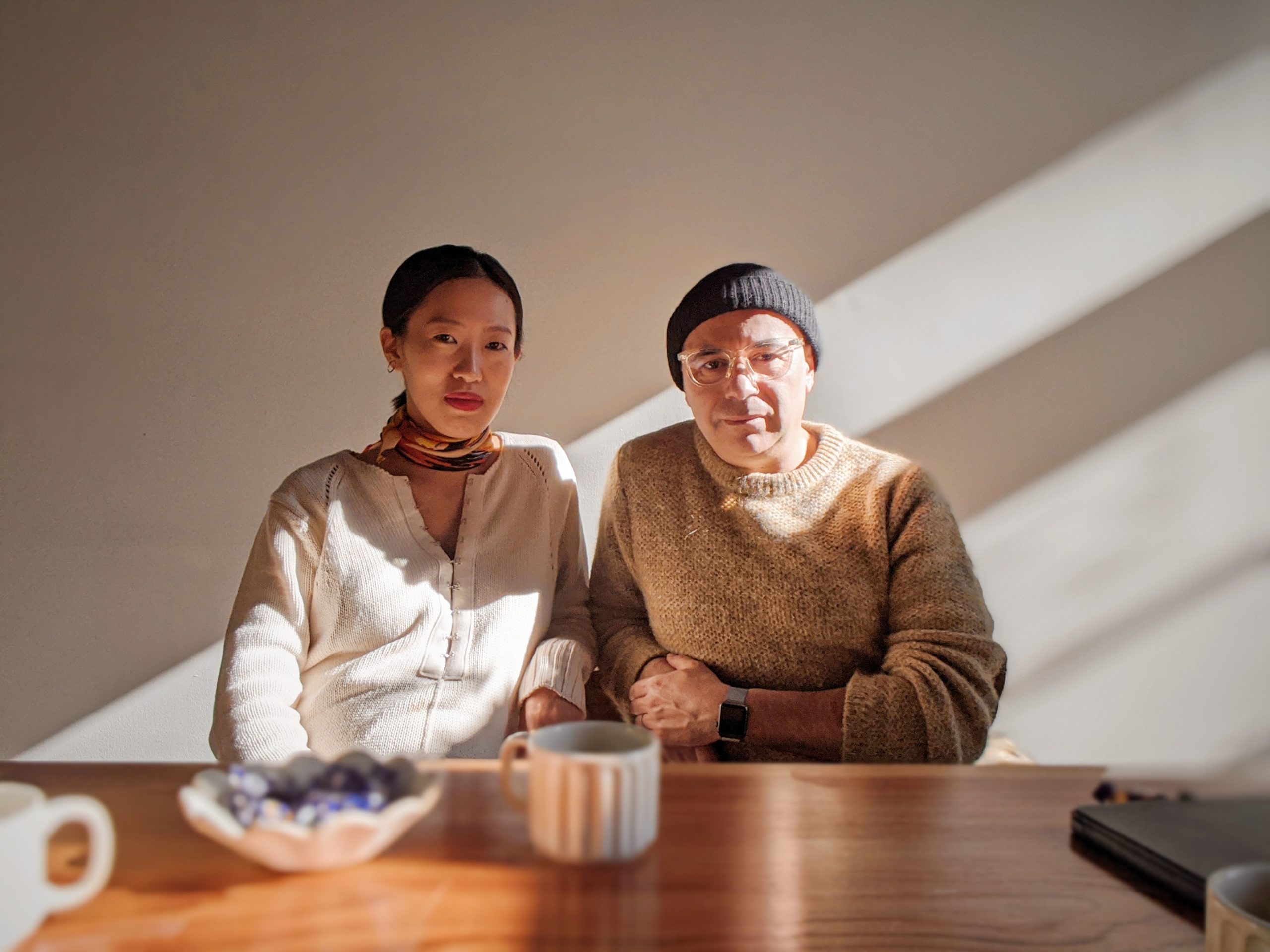
Yuka & LuisTokyo
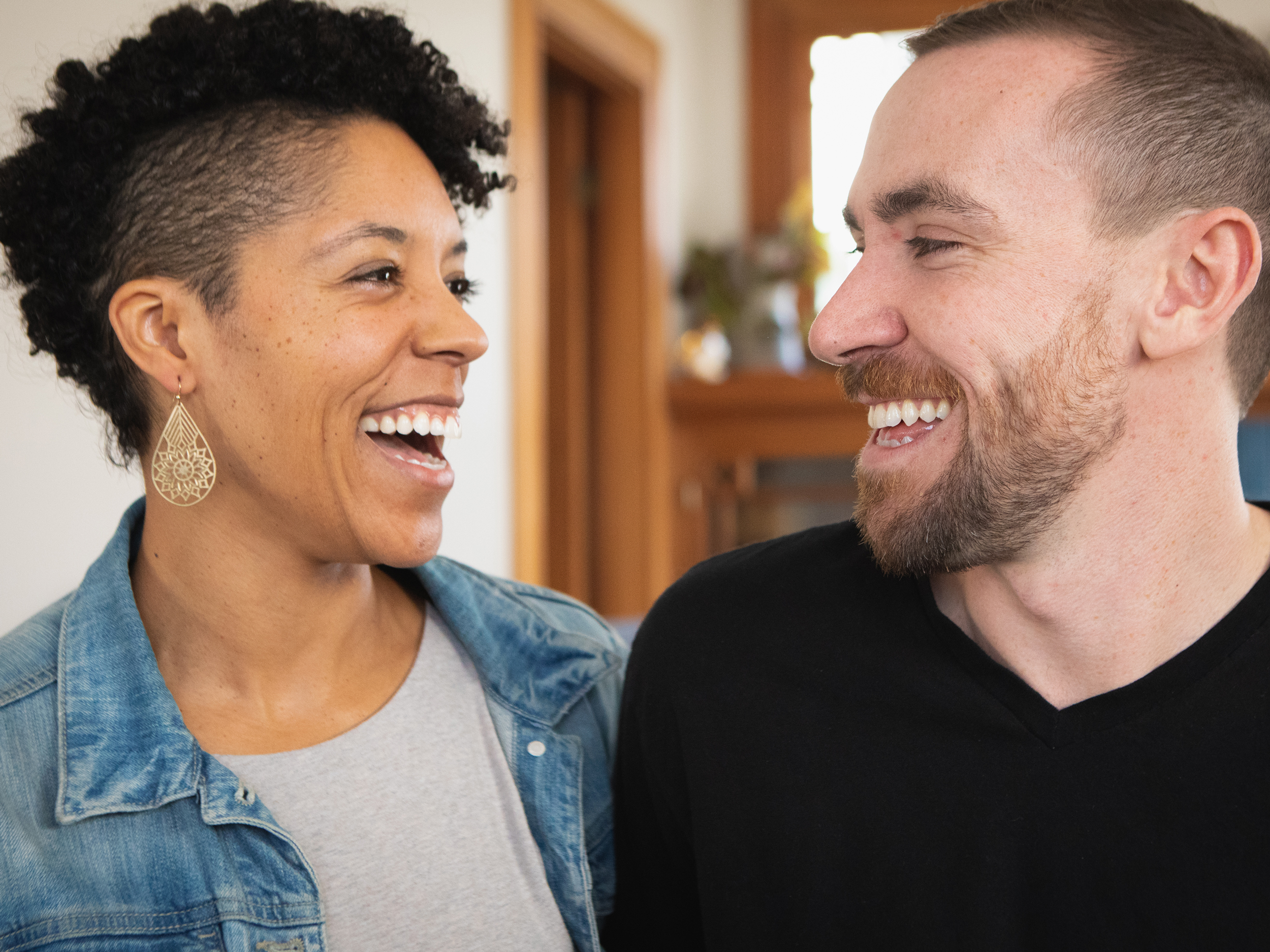
Chloe & DylanOakland

Nidhi & JustinSilicon Valley
Technicolor is an online magazine celebrating multi-ethnic relationships through conversations and photos.
Created by Justin in California 
Thanks to Bonsai partners